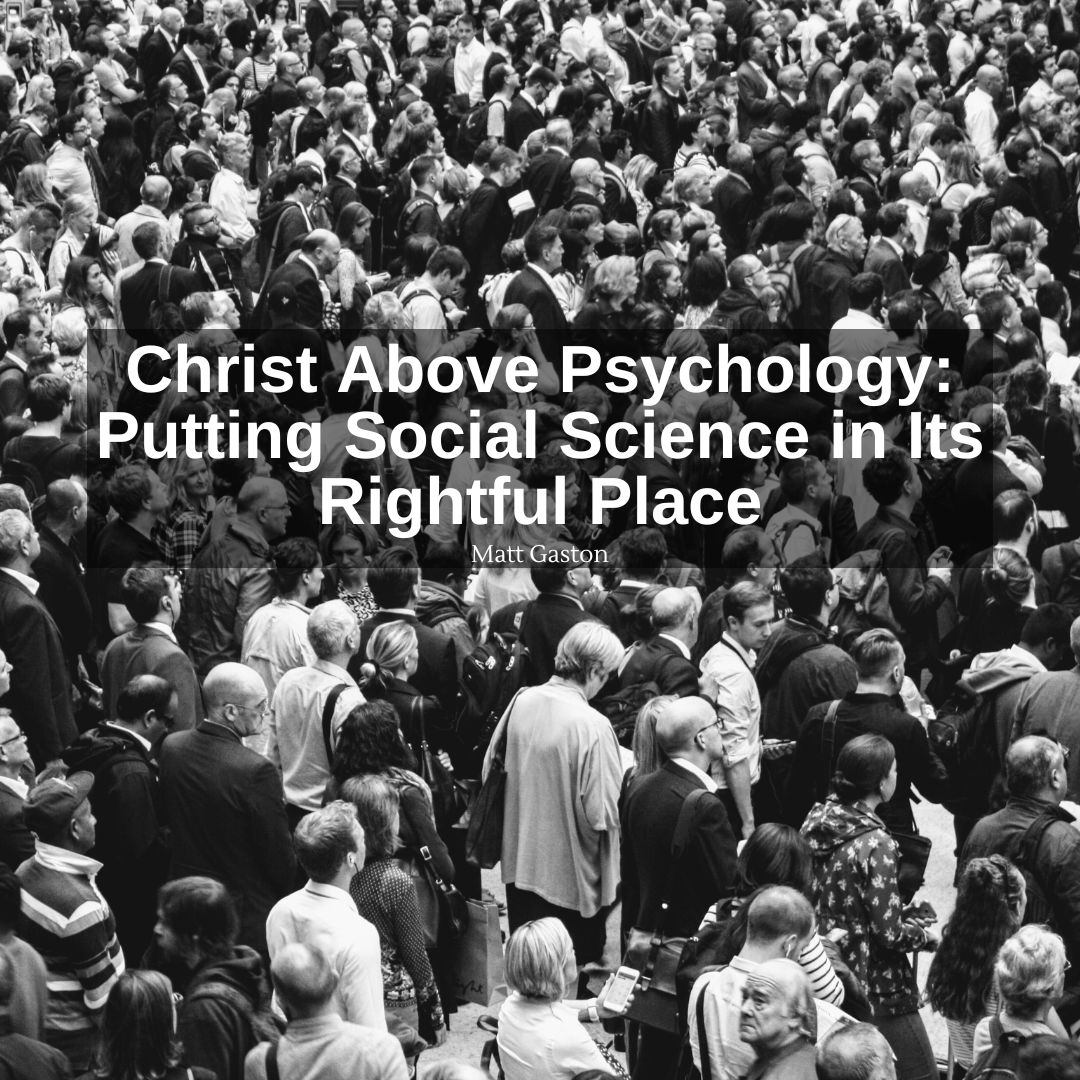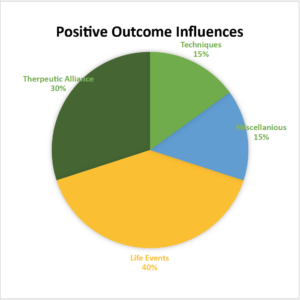
Critical Thinking Is Biblical
The second missionary journey of Paul was catalyzed in part by the decision of the church in Israel to allow gentile Christians into communion with Jewish Christians without having to follow the full law. After this, Paul and Barnabas decided that it would be good to visit all the churches they had planted several years back. Shortly after the massive event at the jail and Paul saving the jailer from killing himself, he and Silas found themselves in the city of Berea, this after being sent away by Christian brothers in order to escape a mob in Thessalonica.
“The brothers immediately sent Paul and Silas away by night to Berea, and when they arrived they went into the Jewish synagogue. Now these Jews were more noble than those in Thessalonica; they received the word with all eagerness, examining the Scriptures daily to see if these things were so. Many of them therefore believed, with not a few Greek women of high standing as well as men.” (Acts 17:10-12, NIV)
The city is described as a place that held noble Jewish people, both men and women. These Jews first considered Paul’s Gospel according to whether it lined up with Scripture. Specifically, as Paul and Silas taught in the synagogue, these Jews examined the Scriptures each day, using critical thinking to confirm the truth of what Paul and Silas were presenting.
The word “examining” used by Luke is from anakrinō which in other passages is translated as judge, bring under judgement, called to account, and discerned, among other lesser uses. The target of their discernment was this contentious and threatening new truth. The critical thinking we see here was very similar to what Paul himself had done for three years in the desert before setting out to proclaim the Gospel.
Come Let Us Reason
The words used by God himself, “come let us reason,” toward Israel in the Book of Isaiah were based on Israel looking logically at God’s own claim of salvation, i.e., sins being made “white as snow.” I begin this article with a story that should be held in the highest regard among Christians. In addition, Christians should rank this example of critical biblical thinking among the highest forms of encouragement in the Scriptures. This is because it shows that we must be both keen and able to engage all thought critically and analyze all proclamations with Scripture close by. In this article, even I will demand your critical thinking and judgement to examine psychology’s place in our churches, lives, and ministry. But first, it might help if I introduced myself.
Cleaning Toilets to Russian Destroyers
My name is Matt Gaston, and I came to Calvary Chapel while on a road trip in 2008. My friend told me that a friend of his was going to college in the area and wanted to know if we could stop by. The week that we spent in the Murrieta area changed my life: I was amazed by Calvary Chapel Bible College, specifically the classes offered. Within six months, I had moved from Texas to attend the college. I finished Calvary Chapel Bible College and served as a missionary in Japan for a little over a year. Afterward, I continued my education, working toward a bachelor’s degree in religion at Liberty University. I then moved to Seattle and attended/served at Calvary Wallingford for eight years, serving as assistant pastor for two years. This began with cleaning toilets and sweeping floors.
During those eight years, I received my master’s of divinity from Liberty University, which is, among other things, the marriage of a theology degree and a focus on practical ministry. I was commissioned as a Naval officer in 2015 and became a Navy Chaplain in 2018, deploying to the 7th fleet on a Navy Destroyer moving through the Mediterranean and Black Seas. One night, the captain decided to spook a Russian Destroyer ship shadowing us in the Black Sea. We were pulling anchor after spending a week in Ukraine and shot out toward the other side of the Black Sea at 30 knots, nearing the fastest our ship could go, thus giving them a heart attack. I am currently billeted to Navy Medical Readiness Training Command San Diego and working through my doctorate in counseling.
Through my almost 6 years of full-time Chaplain ministry, including 3 years working in acute mental health and 1 year in substance abuse, I have conducted around 5000 hours of pastoral counseling. The majority of my time has been spent sitting in front of a Sailor or Marine as they explain how their life fell apart. While on several destroyers, I spent 25-35 hours a week counseling Sailors who were either in crisis or simply just trying to figure out life. Over time, I developed a love for sitting with people like Jesus did, simply to hear about their sorrow, anxiety, despair, or anger and help them explore and process these things—always giving them hope that Jesus loves them where they are at and that they are not forgotten.
As time passed, I began to ask multiple questions: In addition to prayer and helping people bring things to God and Scripture, what are some proven techniques in the counseling world to help that Sailor put his wife first (Ephesians 5:25)? How exactly do I help someone deny their flesh (Mark 8:34) or gain empathy for other people so it is easier to love them (John 13:34)?
My theological and pastoral training prepared me to tell people what to do, but the Bible often leaves how we do it up to us. I knew what to tell them to do, but I lacked how to help them accomplish it. Like many pastors, I focused on a good, healthy relationship with God, rife with prayer and Scripture, but I still drew blanks when people would ask exactly what they should do to execute what I was telling them to do in the first place.
I found, as I began my classes in counseling, that there are concepts and approaches that agree with Scripture. If the Bible was telling me to listen more (James 1:19), active listening—a counseling technique used to mirror body language, speak to rephrase or clarify, validate feelings, and feel what the person is feeling—helped me fulfill what James had been telling Christians to do. I found more and more that psychology and counseling themselves had much to offer in helping me fulfill how to do what Scripture and God Himself tells me to do.
Christ Against Psychology, Christ of Psychology, and Christ Above Psychology
I have a terrible memory. While pursuing my bachelor’s degree, I filled a whole wall with facts I wanted to remember, all written with a permanent marker. I would go to that wall every week to look at what I had written so I could keep those facts in my head. The only thing I remember from those 100-plus facts permanently inscribed onto the wall was that Rome became an empire in 31 B.C. (I looked that up; I had forgotten that lone fact.)
One of the handful of things I remember reading while pursuing my bachelor’s of religion is D.A. Carson’s revisited concept of Richard Niebuhr’s Christ and Culture, an engagement of the church and culture. In his writing, Carson challenges the Christian with these questions: If culture and the church must exist together, for they must, who influences whom? Is it Christ against culture, where your church resists all aspects of the culture? Or is it Christ of culture, where the culture controls the church and determines what the church says or does? Or is Christ to be above culture, controlling and determining how culture is used, with the goal of salvation and wholeness of the people?
First, I need to begin by stating that psychology—or any other field of study or any other way of life—can never save. Unless we are justified through the death, burial, and resurrection of Christ through our own personal confession of sin, repentance, and faith in Christ, we are as lost as a rich man who thinks they can enter heaven with gold, or a good man with philanthropy.
Second, what I mean by psychology is the data, techniques, and approaches that social science tells us, as it devotes itself to studying the mind. Psychology plainly concerns itself with the area of the mind and behaviors. Counseling is the process of helping individuals move through difficult periods of life by using different approaches.
I offer that the relationship between psychology and counseling and the church should be examined similar to the way that Niebuhr and Carson approached culture and the church: Should Christians be against it, having nothing to do with it, no matter the benefit, believing that instead of being a mere tool, it is a living entity with its own will and a desire to subvert Christ? Or should Christians allow psychology to control the church, what it preaches and what it believes; to decide how we conduct counseling; and to determine how we preach the Gospel? Or should Christ be above it, using it as a tool and nothing more in order to further the kingdom of God, the Gospel, and the health and wholeness of its people, all with a vigilant eye out for any misleading or harmful ideas that may come forward? As you can probably guess, I am advocating for the third option. Allow me to share how.
If you have ever taken a biology class, your teacher’s first task was likely to explain what biology exactly is: bio = life and ology = study of. Therefore, biology is the study of life. In similar terms, Theo = God and ology = study of. Therefore, theology is the study of God. So too, psy = mind and ology = study of. Therefore, psychology is the study of the mind. Psychology is a field of study focused on everything that goes on inside of the mind particular to behaviors. Like any other tool, psychology can be used for good or bad, but it must be picked up and wielded by someone. It cannot attack; it cannot heal; it cannot move without someone taking it up and using it. It is much like theology, another area of study, in that theology cannot innately hurt anyone or heal anyone (if you could argue that it really does either). As pastors, we study theology and use it as a tool to help ourselves and others understand God and our relationship to Him. Consider the same approach in terms of psychology or counseling. Can we as Christians take the same approach and still keep Christ as the head above all? The answer is yes!
We Already Trust Science in Multiple Areas
We actually put a lot of faith in social science already. In the 90s, pastors were using psychology in the pulpits as they told families to turn off the T.V. while they sat around the table for dinner. They used it as they talked about raising children. They used it as they talked about taking deep breaths when angry in order to calm down. We use it when we quote the divorce rate or whenever we utter the words “a study shows.” Pastors, how many times have you looked up a study to bolster your sermon? We use medicine produced through scientific research. We drive vehicles that have gone through the rigors of the scientific method for verification of safety. The list of ways we already trust science is endless.
Psychology and Counseling Techniques Pastors Already Use
In the psychology and counseling world, Cognitive Behavioral Therapy (CBT) has been called a “third wave” and incorporated thoughts into behavior modification. We pastors have already been doing that as we follow Romans 12:2: “Do not conform any longer to the pattern of this world, but be transformed by the renewing of your mind” (NIV). Psychology and counseling began directly challenging what they call “cognitive distortions” in clients. These are thoughts that can be extreme, such as phrases that begin with always or never, e.g., “I never do anything right” or “God always wants me to be happy.” Using CBT, they take time to confront, in gentle ways, the logical, or in this case irrational and illogical, thoughts and help people embrace the reality that their embedded truth may not actually be always.
We as Christians, and especially pastors, should be doing this in our congregations. As we look at John 16:33, God does not present as having our happiness as the ultimate goal. What do you make of Jesus’s words where he states that you will have trials but to be of good cheer despite them? If we look here, pastors should be using this approach because our Scriptures tell us to renew our minds. Who better than pastors to help Christians renew their minds and challenge destructive or inhibiting thoughts? Psychology and CBT provide techniques and skills for how not to fall on our face doing it. How many times have you used CBT by challenging thoughts in a person’s life that are not true and redirected them toward biblical thinking and behavior? We already trust science, and if you have ever done any of the above, you are using psychology and science in the correct way. Let’s look at another instance where Christ above psychology is apparent.
There are close to 500 counseling approaches. The number one leading factor toward the positive outcome of counseling is something called the therapeutic alliance, which is the relationship between the person being counseled and the one doing the counseling.

In individual counseling,
-
- 40% of positive change in a counselee’s life comes from events that happen in their life.
- 30% of positive change comes from their relationship with a counselor, chaplain, or pastor.
- 15% of positive change comes from techniques used by the above.
- 15% of positive change comes from miscellaneous sources.
What we see here in counseling is that the most effective thing that brings a person to change is life itself. There are events in life that move a person to consider their plight, and with the help of someone with whom to talk it through, they usually have the capacity to move toward change in a healthy way. As a pastor or counselor, the most effective thing you or I could ever do, according to research in the social science field, is foster the relationship we have with them, i.e., the “therapeutic alliance.” In fact, over 50 years of research in counseling shows that regardless of the approach to counseling you take as a pastor or therapist, regardless of the theory you approach counseling with as a counselor, chaplain, or pastor, the strongest predictor of a positive outcome in that counseling space is the healthy trustful loving relationship you have with the individual. What elements are present in a good relationship?
- Trust
- Empathy
- Respect
- Openness
- Genuineness
- Confrontation
If you look at this figure, it means that your Christ-influenced, loving, patient, kind, good, faithful relationship is the most effective thing you do when you sit down with a person to help them sort out life. These are the greatest things we offer, and pastors must be filled with the spirit when doing counseling.
So, what can counseling even offer? What can psychology offer if we view pastors as filled with the spirit? Why should we rely on anything but the spirit? Because we are fallible and prone to wandering even in the spirit! If we take the stance that psychology is just like the science of mathematics, a tool, then psychology can help us with the how to listen better, how to respond better, how to place questions in the right place, how and when to confront, what to say in some instances, and what not to say in others. Again, I state the Scriptures tell us what to do but often leave how to execute or operationalize that command, up to us.
Putting Christ Above Psychology
If we do take the approach of Christ above psychology, how do we do this so that the relationship stays as intended? Like a good pastor, I close with three ways:
- Be grounded in your theology before inserting another “ology.” This is true for biology, psychology, or archeology. Know the truth of God before looking into other fields. While their goal is not to answer theological questions, those who present the data may end up addressing issues of morality or righteousness intentionally, or unintentionally.
- Be critical of who you are reading. As stated, researchers may have their own motives. Even in the research field, researchers have bias. Researchers are less likely to double check numbers and data if it corresponds to their previously held beliefs than if they oppose them. Data itself has no life of its own. It does not seek to glorify God nor depose Him, but people can.
- Be open if something opposes your way of thinking. Ask yourself if this is a case of your own thoughts or Christian cultural belief being opposed, or the Word of God itself being challenged. The church at one point believed that the world was the center of the universe. Why? Because one leader decided it to be so: Since God loved the world so much, it must be the center of the universe. The church condemned science not because it proposed an unbiblical theory, but because it went against what the church had believed.
Closing
Like Bereans, we, as Christians and shepherds of Christians, should be wary of things we choose. I end this discussion with a view of Romans 14. As Paul looks to ending his own letter to the church in Rome, a church of believers he had never even seen, he looks at the issue of Christians having different views on secondary issues. He begins the chapter stating that the person who thinks they can only eat vegetables should not quarrel with the one who believes the Lord has freed him to eat all things. Next, he addresses the person who believes one day to be sacred and the other person who considers all days the same. Paul says they should not quarrel because, “Whoever regards one day as special does so to the Lord, whoever eats meat does so to the Lord … why do you judge your brother or sister … we all stand before God’s judgement seat.” Paul was addressing the growing subjective righteousness that was appearing in the church, and he encourages each to be “fully convinced in their own mind,” submitting to God according to the conviction put in their hearts.
For some of you reading this, psychology or counseling has many great benefits for you as a person. And for some pastors reading this, you have and will continue to use certain techniques with your church members, and through this process you bring glory to God. For others, you stand against usage of any psychology or counseling, believing it to move people away from God and toward themselves. I pray that each of you be convinced in your mind and walk according to the convictions you believe are from the Lord, walking in humility and openness to those who are on different sides of this debate.
I do hope all of you who have read through this will have at least come away with a more accurate view of the social sciences as a tool, a tool as neutral as mathematics, able to be wielded to bring glory to God, away from God, or in neither direction, just like biology or any other “ology.” I pray that we may have open discourse on this issue, and others, in the future, determining what is right in our own walks with the Lord, or in the flocks we lead.










